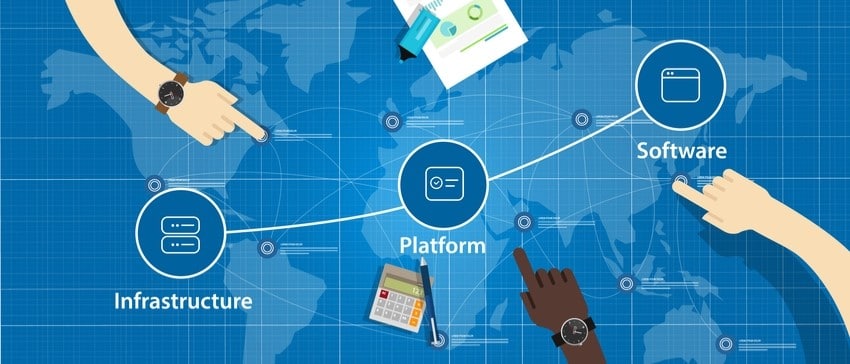Estimated reading time: 6 minutes
• Project management refers to the process of applying managerial practices, skills, and knowledge to manage a project from beginning to end. Project managers work with a team of players or personnel to meet project goals.
• Project managers further establish project deliverables: deliverables refer to ‘what needs to be accomplished at every stage of the project. Project managers create a project plan that carefully details the tasks to be undertaken, and the personnel responsible for each step and deadline.
• It’s critical to note that project management happens in many organizations and spans different industries – public, construction, healthcare, government, banking, and many more.
Procurement Project Management
Project management is also a critical component of successful supply chain or vendor processes. In what’s called procurement project management, this form of project management ensures that different goals and processes involved in vendors and sourcing processes are met.
Project management in procurement details a strategic process of sourcing products and services to meet specific project goals. The organization responsible for sourcing products assigns a project manager the responsibility of sourcing products, often by developing the best sourcing processes and practices.
Key Features of Project Management
Project management as a managerial practice has several key features and characteristics:
1. Task management
Task management is the most integral part of your project management process. Task management tools enable project managers to keep all their schedules, project scopes, and project deliverables in one place. Project management helps you to stay on top of everything in your project.
Task management as a function of project management achieves the following:
- Creating task lists with easy-to-use task checklists
- Setting reminders for yourself and others on project tasks
- Comment and give feedback on any part of the project
- View or add details for each task
- Tag tasks with meta-tags or keywords for easy tracking
Task management is the epicenter of any successful project management.
2. Time tracking
Time is of the essence in project management. Time tracking as a characteristic of project management helps project managers to meet deadlines of complex project undertakings.
Time tracking features in project management software help project managers track the time spent on tasks, communication, email, and calls. Time tracking is an important component that helps you track your time and bill clients accordingly.
3. Project scheduling
Project scheduling allows you to arrange or organize your project undertakings based on a deadline, date, or time. You can schedule your tasks and projects simultaneously, staying updated on ongoing tasks.
When you create a task, it’s automatically added to your schedule, and a reminder can be set. A project schedule is a prime feature of project management as it helps project managers keep track of critical deliverables and meet strict deadlines.
4. Communication
Communication is an indispensable part of any project management. Communication refers to the transfer of information from one person to another, usually by giving instructions, feedback, solicitation, and guidance to team players.
Communication helps coordinate different team members, creating a coherent network of project players committed to the project goals. In most cases, communication happens to give instructions and lay down project goals and guidelines. Communication also helps to convey the project goals based on the client’s expectations.
Your project will fail without a proper communication plan.
5. Reporting
Reporting is a critical component of any successful project. Reporting ensures you obtain a detailed view of how resources are consumed and how well the project goals are met. Regular reporting is part of quality control because performance can be tracked and conveyed to the relevant personnel or parties.
Reports provide an assessment metric, allowing project managers to remain at the top of their game in tracking performance. In addition, reporting helps project stakeholders – managers, financiers, donors, and government – to be aware of the project proceedings, helping to avoid conflict or financial loss.
Project Management Software
Project management being an evolving domain requires evolving and adaptive solutions. Project management is a complex undertaking that demands creative solutions.
Project management software represents one of these emergent solutions to project management tasks, including scheduling, planning, timing, and reporting. Project management software contains features.
These varied software features help project managers create, store, track, review and report project deliverables – anywhere and anytime!
The key features embedded in new project management systems or software include:
1. Planning and monitoring
Project management systems or software provide comprehensive shipping details, including order ID, order number, shipment date, and freight data. Businesses can analyze planning metrics to track key performance indicators and make better and more strategic decisions.
Project management software provides performance monitoring and tracking capabilities, helping project managers remain at the top of their game.
The following features are embedded in project management software to ensure planning and better monitoring:
- Shipment notification management
- Electronic messaging application programming interface API
- Customization notifications
- User configuration dashboard
- In-transit status update
- Demand forecasting
- Material requirements planning
- Product category management
- Supply chain simulation
- Supply network scheduling
Planning and monitoring are integral parts of procurement project management.
2. Order processing and inventory management
Order processing and inventory management are critical elements of any procurement project management task. Obtaining an order from inquiry to sale quickly and efficiently is the ultimate goal of any procurement and sourcing process.
So, there’s no doubt that getting a head start with the right ordering and inventory management solution is the secret to successful project management. A project management software efficiently handles the creation, ordering, and delivery of goods, including products from multiple drop shipments and channels.
3. Warehouse management
Warehouse management solutions are delivered by project management solutions or software. A warehouse management system or software brings a desirable level of control to your warehouse’s physical inventory.
The system helps users directly and comfortably control what happens in the warehouse or storeroom. Warehouse personnel can track inventory, assess orders, schedule deliveries, and monitor and report warehouse activities.
A project management suite has tools that help with warehouse management. These tools include:
- Integrated labeling
- Inbound processing
- Cross-dock planning
- Storage optimization
- Outbound processing
- Labour management
- Multiple warehouse support
- Warehouse KPI reports
- Off-site equipment
Remote warehouse management solutions are prime factors in successful project management. Project managers with project management solutions can enjoy remote control and bring a more desirable level of control to their warehouse simply by using more customizable project management solutions.
4. Category management
Category management is a disciplined and strategic approach to managing a company’s product line as one strategic business unit. Category managers aim to create discrete product categories that behave and function as one business unit.
Procurement project management software or solutions provide category management. The project management software ensures proper categories to realize varied business goals.
Category management requires a good grasp of category management best practices or principles, including:
- A strong supply chain and market knowledge
- A cross-functional team approach
- Consumer or user engagement
- Effective implementation
- Regular oversight and evaluation
- Reporting and feedback
- Continuous improvement
Whether trying to organize a team to accomplish a project or talking about workplace productivity, a category management system can help you get the work done.
5. Contract management
Last but not least, project management software provides contract management solutions. Contract management is an indispensable step of any successful project management.
That’s because products and services have to be sourced for projects to go on as planned. A project management solution provides contract management capabilities, helping project managers be at the top of their game in project sourcing and ordering processes.
ProcurePort – Streamlining Your Procurement Project Management
For many years, project management solutions have taken the project management field a notch higher. And productivity tools and software are the secret ingredients for natural progression.
The secret to benefiting or reaping from project management software is knowing how to select one yourself and knowing how to use it. Today, more than ever, trusted providers are offering project management software solutions best suited to your needs.
You can contact ProcurePort for project management solutions, especially in procurement and supply chain.










